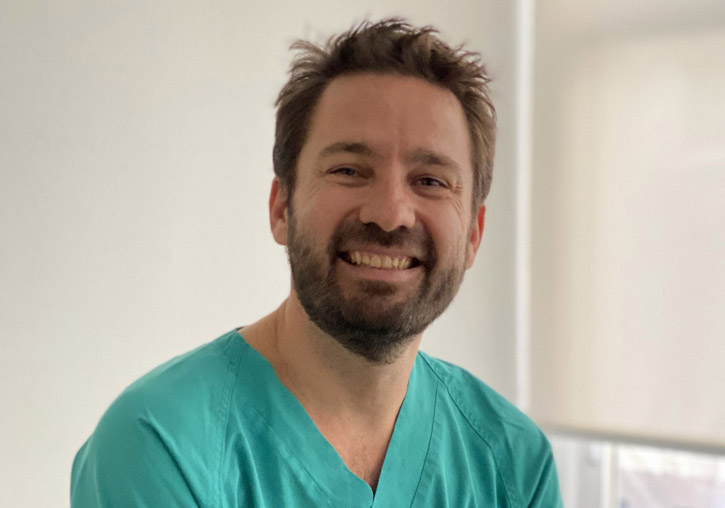Rafael Badenes leads a study on the prevalence of coma and delirium in ICU patients with COVID-19
- Scientific Culture and Innovation Unit
- January 9th, 2021

The professor of the Department of Surgery of the University of Valencia and researcher at the INCLIVA Health Research Institute Rafael Badenes has coordinated an international study carried out in various institutions and hospitals on the prevalence of coma and delirium and the risk factors associated with the development of this in patients with COVID-19 admitted to Critical Care Units (ICU). Research suggests eliminating benzodiazepines as a sedative and facilitating family visits, with security measures, either in person or virtually.
In the research, published this Friday in the prestigious journal Lancet Respiratory Medicine, have participated the Valderbilt University Medical Center – under the coordination of E. Wesley Ely, Pratik P. Pandharipande and Brenda T. Pun – and the HUCI project, for humanisation of the Intensive Care Units, promoted and directed by Gabriel Heras.
To date, around 750,000 patients worldwide with COVID-19 have required mechanical ventilation, which implies a high risk of coma and delirium. Research has described the prevalence of this type of acute brain dysfunction in patients admitted to an ICU with COVID-19 and has analysed the risk factors associated with delirium, in order to develop strategies to mitigate it, as well as the associated sequelae.
Rafael Badenes, also a researcher at the Clinical Hospital of Valencia, of the INCLIVA Anaesthesia Research Group and head of the Anaesthesia section of the Clinical Hospital of Valencia, in the research suggests intervening in the face of two risk factors for the development of delirium that are modifiable: “The overuse of benzodiazepines as sedatives”, which he proposes to withdraw, and “the absence of visits from family and friends, both in person and virtual, because it is associated with much more delirium, and these strategies could mitigate delirium and its associated sequelae”.
In this sense, it is committed to stopping the use of this type of sedatives, which have been administered to 70% of patients with COVID-19, and insists on the importance of promoting more humane contact between family members and their friends and hospitalised patients, if it can be, in a personal way, with all the security measures and, if not, in a virtual way.
Methodology
Rafael Badenes detected that patients admitted to the ICU for COVID-19, for different reasons, remained sedated for longer than other types of patients and that, among them, the prevalence of delirium was being very high. This finding led him to contact the Valderbilt University Medical Center – a leader in the study of delirium – and promote research on this aspect, also with the collaboration of the HUCI project.
A retrospective cohort study was carried out, taking into account the data of 2,088 patients admitted to 69 ICUs – 50% of them from Spanish centres – from 14 countries, between January 20 and April 28, 2020.
The research methodology was based on a study protocol designed by Rafael Badenes, sent and worked together with researchers from Vanderbilt University Medical Center and the HUCI project. Professionals from the Anaesthesia and Intensive Care groups of the Clinical Hospital of Valencia have participated in the research and different departments and professionals from INCLIVA have participated.
Among the Spanish hospitals it is worth mentioning, in addition to the Clinical Hospital of Valencia, other Valencians that have treated the most patients with COVID-19 during the study period, such as the General Hospital, Dr. Peset and La Fe Hospital; as well as the Ramón y Cajal, on 12 de Octubre, the Gregorio Marañón and La Paz, all four in Madrid.
Article:
Brenda T Pun et.al. “Prevalence and risk factors for delirium in critically ill patients with COVID-19 (COVID-D): a multicentre cohort study”. The Lancet Respiratory Medicine. Published: January 08, 2021. DOI: https://doi.org/10.1016/S2213-2600(20)30552-X
















